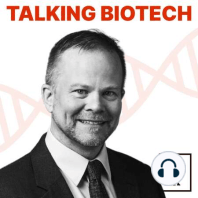80 min listen

Livestock, Climate Change, and Attacks on a Scientist - Dr. Frank Mitloehner
Livestock, Climate Change, and Attacks on a Scientist - Dr. Frank Mitloehner
ratings:
Length:
48 minutes
Released:
Nov 5, 2022
Format:
Podcast episode
Description
Animal agriculture contributes greenhouse gases that can influence climate change. One source in particular is cattle, as ruminant livestock produce methane from their specialized digestion, which is an especially potent greenhouse gas. Dr. Frank Mitloehner of the University of California Davis is an air quality expert in the area of ruminant biology. His research examines ways to mitigate the impact of livestock on climate, and his outreach efforts ensure that the information reaches the farmers and ranchers that can employ these strategies. In today's podcast we discuss the role of livestock in animal agriculture, as well as how he communicates new researchers to stakeholders. In the second half, we discuss an article in the New York Times that specifically targets Dr. Mitloehner, suggesting that big-money-industry taints his research and outreach outcomes. This baseless attack on a scientist's reputation is unsubstantiated by evidence, yet is penetrating, visible media clearly designed to harm a trusted public scientist and scholar. We discuss the impacts and how to scientists push through baseless allegations.
Released:
Nov 5, 2022
Format:
Podcast episode
Titles in the series (100)
Genetically Modified Mosquito Control – Careers in Plant Breeding: This week’s podcast discusses Kevin Folta’s public records situation for 60 seconds. That is followed by a talk with Dr. Andrew McKemey from Oxitec in Oxford, England. Oxitec has a technology that allows rearing of male mosquitoes that transmit a gene by Talking Biotech with Dr. Kevin Folta